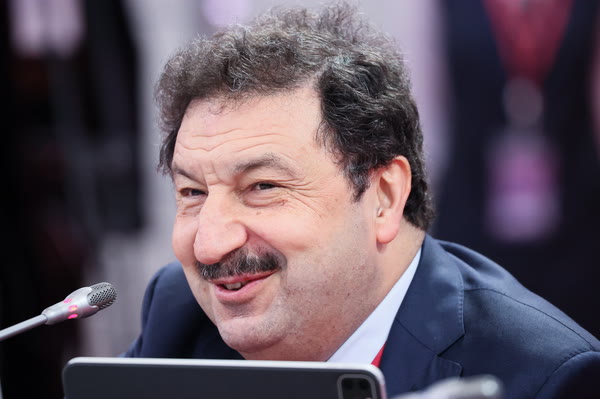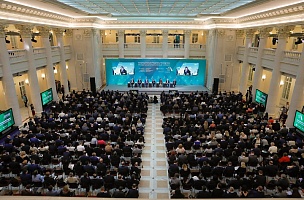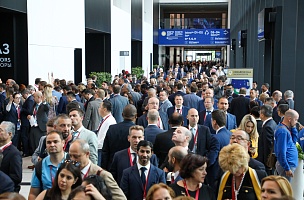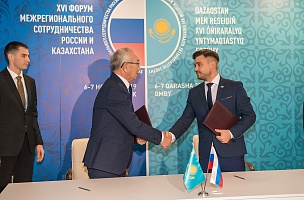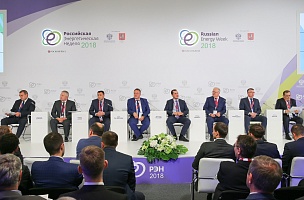Key conclusions
Strategic Planning is Still Needed
“The UN Sustainable Development Strategy is a platform for shaping a new world, the future of nations, and each of us. But we need to update the strategy. Tectonic disturbances of global integration are changing focuses and turning humanity into islands. We need to come up with some new solutions in this global mosaic. We have to adapt our planning to this new reality. It introduces uncertainty, but it also creates additional motivation. Strategic planning is very important, but it has to be mindful of the changes taking place in the world,” Nenad Popovic, Minister for Innovation and Technological Development, Government of the Republic of Serbia.
“Strategy is something we need to occupy ourselves with, but it is not an end in itself. It is a way to develop a common language and understand the direction we’re moving and developing in,” Vladimir Mau, Rector, Russian Presidential Academy of National Economy and Public Administration (RANEPA).
Society Needs to Come up with new Relationship Patterns
“It would be a mistake to think only about social questions and ignore technology, the investment environment. Economic growth does not equal human well-being. We have to reconsider our models and pose questions: do we consider ourselves human capital, do we want our children to be human capital?” Svetlana Chupsheva, General Director, Agency for Strategic Initiatives to Promote New Projects.
PROBLEMS
Difficulties with Forecasting
“Modern trends have more to do with Marxism. The theory of long trends in economic development is central to Marxism. In terms of human capital, its role increases significantly as modern economic growth develops. The more dynamic the society, the economy, the technology, the greater the role of human capital. And it makes forecasting more difficult. It’s one thing to make forecasts when nothing changes for centuries. It’s something different altogether when technology suddenly becomes so much more affordable in the space of a single generation,” Vladimir Mau, Rector, Russian Presidential Academy of National Economy and Public Administration (RANEPA).
“Strategic planning is always difficult. The process is now influenced by the tectonic changes we are seeing for the first time ever. There had been predictions saying we would all be living in an open space without any borders. But now we are seeing, on the contrary, the creation of islands. The strategic planning that takes place in enormous country giants differs from the planning in small countries like ours. But first and foremost, we are raising questions of sovereignty, of technological sovereignty. Can anyone have full sovereignty given this tendency towards islands?" Nenad Popovic, Minister for Innovation and Technological Development, Government of the Republic of Serbia.
Imperfect Global Communication Systems
“The situation with the coronavirus showed that each country had to tackle the main issue – the vaccine – on its own. The globalization system failed to function properly, and everyone had to rely on themselves. Of course, we worked together with the European Union and other countries. But we got most of our vaccines from China and Russia. It’s hard to call this state of affairs strategic planning,” Nenad Popovic, Minister for Innovation and Technological Development, Government of the Republic of Serbia.
Rapidly Changing Conditions
“The pandemic has shown how non-linear the effect can be, how unconventional such a situation affects mass consciousness. And forecasting is also psychotherapeutic in a sense. An important aspect of forecasting is how ready the elites are to work with a tool like forecasting,” Oleg Makarov, Director of the Belarusian Institute for Strategic Research (BISR).
SOLUTIONS
Finding New Models of Interaction
“We will come to new relational models for both technology and social issues. The regulatory sandbox principle will be so mainstream for the next ten years, and it’s already happening now. There is a need for rapid opportunities to implement models that will work on a national scale. Regulatory sandboxes should be extended not only to digital technologies but also to governance and tax regimes. Russia could become a testing ground for new solutions and technologies in different areas. This could be a serious advantage and help to attract new partners and new personnel interested in implementing solutions of this kind,” Svetlana Chupsheva, General Director, Agency for Strategic Initiatives to Promote New Projects.
“The question of the last ten years is a trend towards a plurality of currencies, the increasing role of regional foreign exchange reserves. We will probably live in a world where there is competition between private currencies. Cryptocurrency is the most interesting trend from a monetary system perspective,” Vladimir Mau, Rector, Russian Presidential Academy of National Economy and Public Administration (RANEPA).
A Flexible Approach to Planning for Rapid Change
“Still, some kind of sovereignty must exist in any area. Food security is also important for strategic planning. That is, strategic planning is now a country’s need to have as much of its own stuff as possible. However, without global alliances, without ties between countries, it won’t be impossible,” Nenad Popovic, Minister for Innovation and Technological Development, Government of the Republic of Serbia.
“Methodology is very important. It’s a fuzzy area of knowledge. We can predict events in accordance with trends, migration, food security. But it is difficult to bring all the trends together into a single image. That is, the image should be formed from desires and not opportunities,” Oleg Makarov, director of the Belarusian Institute for Strategic Research (BISR).
Maintaining Connections with Other Countries
“First of all, the American Chamber of Commerce is here. We haven’t left. Most of our companies have decided to stay in Russia. 85% have stayed, and only 11% have left, and another 4% are still thinking about what to do. Secondly, we have excellent solutions in place with the Russian government, and we’re working with all the Russian associations. All the Western associations are working closely with Russian organizations. I think the dialogue will continue. We’re trying to keep the dialogue open. We’ve been through a lot in the last 50 years, and we hope to keep our relationship going,” Robert Agee, President, Chief Executive Officer, American Chamber of Commerce in Russia.


